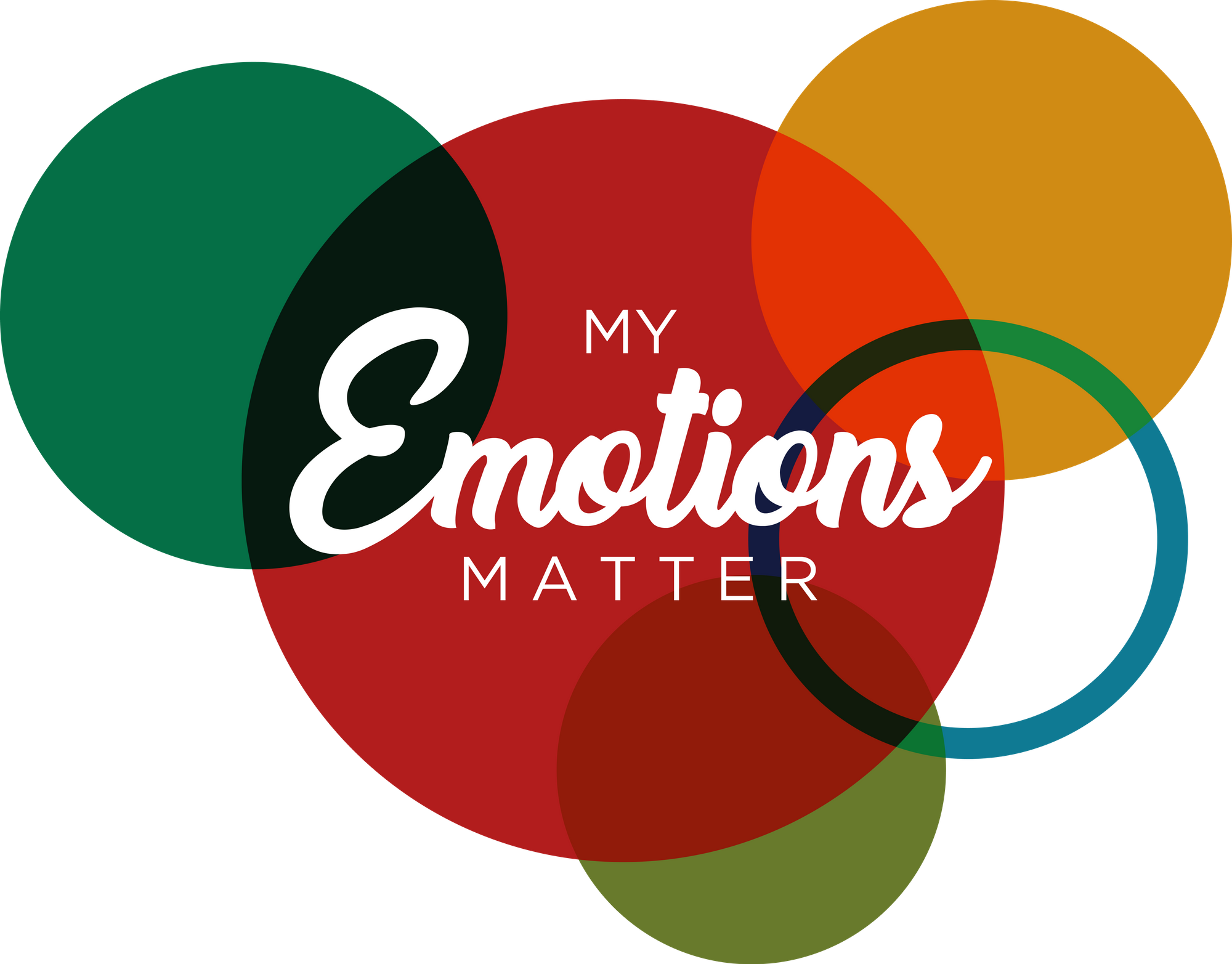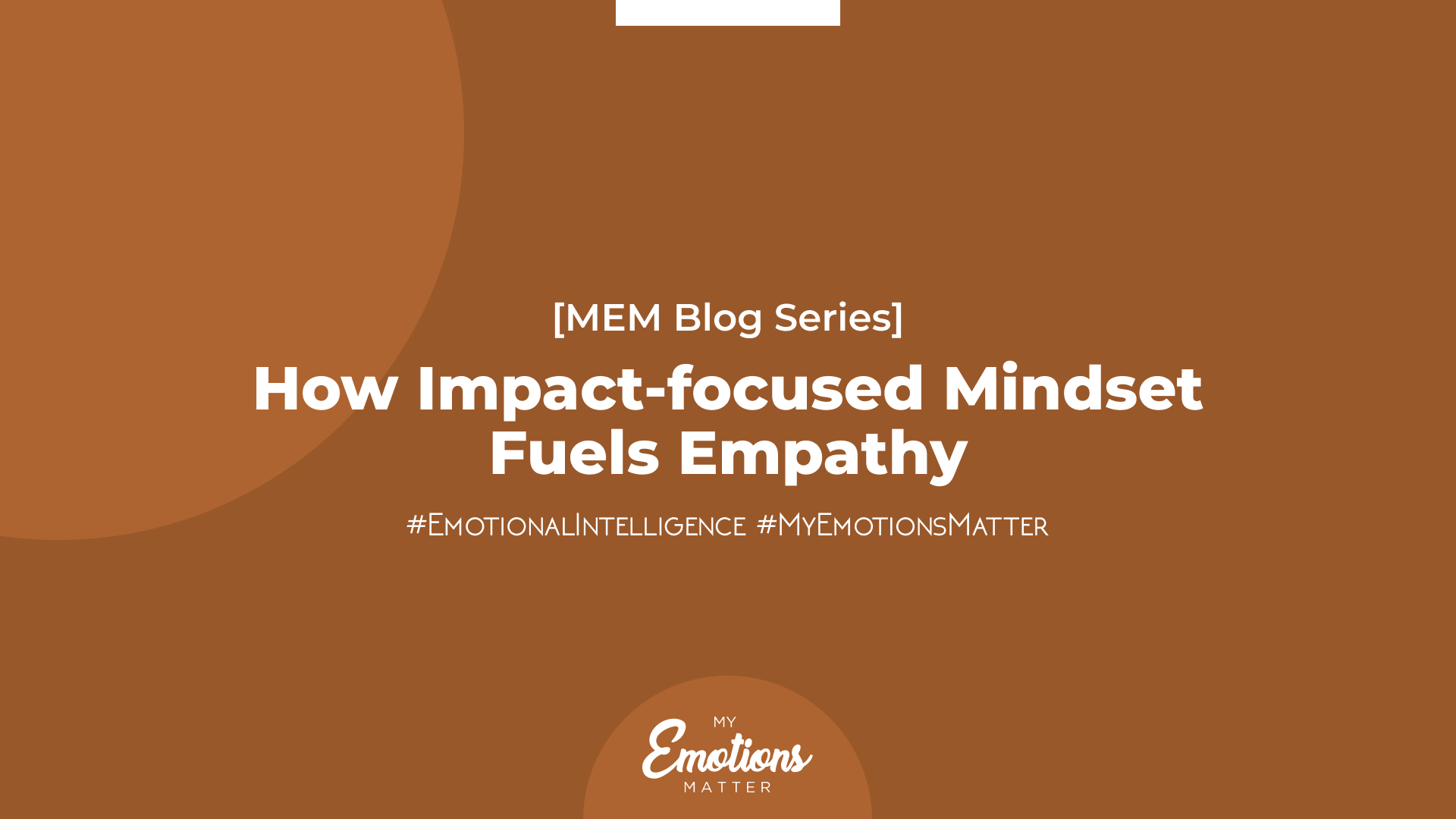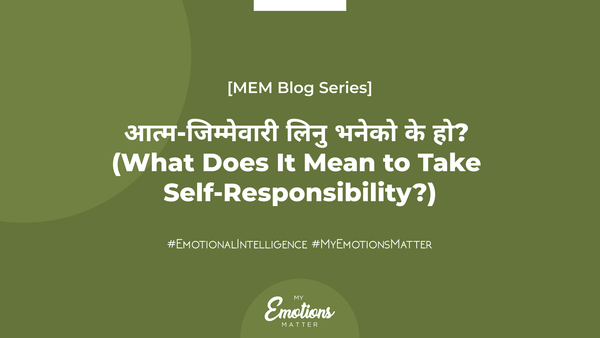How Impact-focused Mindset Fuels Empathy
Through the MEM Case Study series, we take a look at how our participants have applied the concepts learnt in our sessions.
Empathy, also defined as the ability to step into someone else’s shoes and look at things from their perspective, is an integral aspect of Emotional Intelligence. It is hard to manage our interpersonal relationships without empathy. A lack of sense of empathy within us can make us forgetful of the fact that other people are humans too who have their own objectives to fulfill and challenges to take care of. As a result, we commonly replace communication with unproductive and bitter conflicts. This invites more distress in our lives.
Much of our life is spent trying to understand others and wishing others understood us better than they currently do. As social beings, there is no escaping other people. Whether at home or at work, we need to actively work together in the presence of others. As we go about our lives, we can either operate by taking others into account or resort to a self-focused way of being. While it may seem like the former requires immense emotional investment along with intentional efforts, the fact remains that when we operate only in a self-focused way, we are bound to frustrate others and invite potential conflicts.
My Emotions Matter’s 10-hour session ‘Emotional Intelligence Mindset: Getting Out of the Box’ introduces participants to two kinds of mindsets: a Self-focused Mindset and an Impact-focused Mindset in which other people are taken into consideration. As an organization that understands the importance of cultivating an empathetic culture, Reduct Nepal recently took up our 10-hour session for its team members.
One of our participants from the sessions, Mr. Ujwal Shrestha shared a personal experience operating with an Impact-focused Mindset, “I remember how our session facilitator had given an example of a landlord and a tenant. The tenant had issues with the water supply but felt hesitant to ask for help from the landlord. Understanding the pain of the tenant opened my eyes. And as a landlord myself, it made me think of the tenants residing in our house. When my tenants had initially shifted, I had asked them if they were satisfied with the services we provided to them. However, during the regular course of life, I forgot to make this inquiry a regular habit and I was unaware if they were satisfied with us as landlords. After the session, I saw my tenants as human beings with their own needs, hopes and concerns and I made a deliberate effort to visit and ask them if they were fine with the services being provided. This gave an opportunity for the tenants to voice out their concerns openly and for us as landlords, this was an opportunity to learn.”
This is the power of empathy – the foundation of which is having an Impact-focused Mindset. With an Impact-focused Mindset, we are alive to the concerns and challenges of others around us. The result: we start to become more open towards others’ perspectives and challenges and respond to those challenges compassionately. This builds openness and trust in relationships.
Ujwal also shared another example of how empathy helped him build a trusting relationship with his brother. He shared, “My brother recently completed his schooling and is on a break. So, I am trying to do some things in partnership with him, which includes musical collaborations. Sometimes, when he is feeling lazy and doesn’t want to do things, rather than lashing out on him or judging him for being lazy, I have a calm conversation with him. I ask him his concerns or any particular reasons that keep him from doing his work. I remind myself to operate with an Impact-focused Mindset and look at my brother as a human. This has made our relationship transparent and has helped us become better collaborators.”
Functioning with an Impact-focused Mindset shifts the focus from ‘Me’ to ‘We’. When we are guided by an Impact-focused Mindset, rather than making our needs the focal point for all our interactions with others, we work towards finding a common ground between ours and others’ needs. This prevents us from exhibiting controlling behaviors towards others. Rather, we make other people feel heard and understood which are the basic emotional needs we humans have.
Whilst it is easy for us to wait for others to change and show us empathy first, it is important to remember that sustainable change begins with us and a change in our mindset. In our interpersonal relationships, it is not so much what we do but rather what we invite in others. In other words, what are the consequences of our actions? Do they make others feel heard and understood or do our actions invite defensiveness in others? With an Impact-focused Mindset, we show concern for the other person’s needs, objectives, and challenges (The Arbinger Institute, n.d.). If we are looking to build strong relationships both in our personal and professional life, the way forward has to be informed by the understanding that the people who we rely on for our own goals are also human beings just like us.
References
The Arbinger Institute. (n.d.). What is an outward mindset? The Arbinger Institute. https://arbinger.com/blog/what-is-an-outward-mindset/




